-
 Bitcoin
Bitcoin $118200
0.49% -
 Ethereum
Ethereum $3580
0.33% -
 XRP
XRP $3.429
-0.49% -
 Tether USDt
Tether USDt $1.000
-0.05% -
 BNB
BNB $734.1
0.18% -
 Solana
Solana $177.7
0.26% -
 USDC
USDC $0.9999
-0.01% -
 Dogecoin
Dogecoin $0.2434
4.12% -
 TRON
TRON $0.3203
-1.58% -
 Cardano
Cardano $0.8334
1.59% -
 Hyperliquid
Hyperliquid $44.70
2.39% -
 Stellar
Stellar $0.4636
-1.10% -
 Sui
Sui $3.789
-0.43% -
 Chainlink
Chainlink $18.49
4.03% -
 Hedera
Hedera $0.2674
-0.08% -
 Avalanche
Avalanche $25.08
6.37% -
 Bitcoin Cash
Bitcoin Cash $520.4
1.12% -
 Shiba Inu
Shiba Inu $0.00001495
1.88% -
 Litecoin
Litecoin $112.5
9.34% -
 UNUS SED LEO
UNUS SED LEO $8.994
0.24% -
 Toncoin
Toncoin $3.209
-0.74% -
 Polkadot
Polkadot $4.393
2.95% -
 Uniswap
Uniswap $10.16
-0.07% -
 Monero
Monero $325.2
1.09% -
 Ethena USDe
Ethena USDe $1.001
0.00% -
 Bitget Token
Bitget Token $4.898
-1.03% -
 Pepe
Pepe $0.00001326
0.54% -
 Dai
Dai $1.000
0.02% -
 Aave
Aave $317.2
-0.43% -
 Cronos
Cronos $0.1214
0.07%
Is my money FDIC insured on Coinbase?
FDIC insurance doesn't cover Coinbase accounts, as it's a crypto exchange, not a bank.
Jul 09, 2025 at 08:35 am
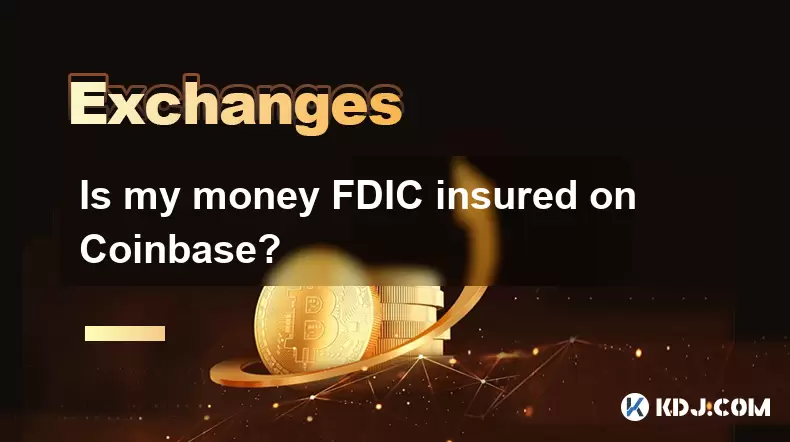
Understanding FDIC Insurance and Its Applicability to Coinbase
FDIC insurance, or the Federal Deposit Insurance Corporation, is a U.S. government agency that protects depositors in case an insured bank fails. Typically, FDIC coverage applies to traditional banks and credit unions, offering protection of up to $250,000 per depositor, per institution, for each account category. However, Coinbase is not a bank; it is a cryptocurrency exchange platform. As such, standard FDIC protections do not automatically extend to funds held on Coinbase.
It’s crucial to understand that FDIC insurance covers deposits in traditional financial institutions, such as checking accounts, savings accounts, and certificates of deposit (CDs). It does not cover investments in stocks, bonds, mutual funds, or cryptocurrencies. Since Coinbase operates as a digital asset trading platform, not a bank, its services fall outside the scope of FDIC jurisdiction unless explicitly stated otherwise.
How Coinbase Handles User Funds
Coinbase maintains a clear separation between user funds and company assets. The platform stores the majority of customer funds in offline storage, also known as cold storage, to reduce the risk of theft. While this enhances security, it does not equate to FDIC insurance. Instead, Coinbase has obtained insurance policies to protect against certain types of losses, such as hacking or internal theft.
The platform’s custodial services are insured through third-party insurers, but this coverage is limited to specific scenarios and does not guarantee full reimbursement under all circumstances. Importantly, these policies apply only to digital assets stored within the platform and not to fiat currencies like USD unless specifically outlined.
Does Coinbase Offer FDIC-Insured Accounts?
Coinbase does offer a feature called Coinbase Earn, which includes interest-bearing products for holding certain cryptocurrencies. Additionally, some users may opt for the Coinbase Wallet, which allows for self-custody of crypto assets. However, none of these offerings come with FDIC insurance attached.
In 2021, there was speculation about Coinbase launching a product that could potentially be FDIC-insured, but as of now, no such service exists on the platform. Users who transfer USD into their Coinbase accounts are typically using a brokerage-style service where funds are held at partner banks that may be FDIC-insured, but only while the funds remain in the partner bank’s custody. Once those funds are used to purchase cryptocurrency, they are no longer eligible for FDIC protection.
What Happens If Coinbase Fails or Is Hacked?
In the unlikely event that Coinbase experiences insolvency or suffers a major security breach, the outcome for users depends on how assets are stored and insured. Coinbase maintains reserve assets to back customer holdings and has insurance policies in place to cover losses from certain risks, including theft from online storage systems.
However, these insurance policies are not equivalent to FDIC insurance. They are commercial policies that may have exclusions, limitations, and claim processes that differ significantly from government-backed insurance. In the event of a hack, Coinbase would likely handle claims through its insurer, which may involve delays or partial compensation depending on the nature of the incident.
Steps to Verify Security Measures on Coinbase
If you're concerned about the safety of your funds on Coinbase, here are several steps you can take:
- Review Coinbase's Security Page: Visit the official Coinbase website and explore the security section, which outlines encryption methods, two-factor authentication, and fund storage practices.
- Enable Two-Factor Authentication (2FA): This adds an extra layer of security to your account and reduces the risk of unauthorized access.
- Use a Cold Wallet for Long-Term Storage: For significant holdings, consider transferring assets to a hardware wallet instead of keeping them on the exchange.
- Check Account Insurance Details: Review Coinbase’s terms of service and insurance disclosures to understand what protections apply to your holdings.
- Monitor Account Activity Regularly: Keep an eye on login attempts, transaction history, and email notifications to detect any suspicious behavior early.
Frequently Asked Questions
Q: Can I get FDIC insurance by linking my Coinbase account to a bank?
A: Linking your Coinbase account to a bank does not provide FDIC coverage for your cryptocurrency holdings. Only the funds held directly in your bank account are insured, not the assets transferred to Coinbase.
Q: Are stablecoins like USDC on Coinbase FDIC-insured?
A: Stablecoins themselves are not FDIC-insured, even if they are pegged to the U.S. dollar. However, the reserves backing certain stablecoins, like USDC, may include FDIC-insured cash held in partner banks. This does not extend the insurance to individual token holders.
Q: Has Coinbase ever lost customer funds due to a hack?
A: Coinbase has not reported any major breaches involving customer funds being stolen. The platform employs robust security measures, including cold storage and insurance policies, to mitigate risks.
Q: Is there any way to get FDIC-like protection for crypto assets?
A: Some platforms and custodians offer institutional-grade insurance or hold assets in FDIC-insured bank accounts, but these protections are limited and vary by provider. Always review the fine print before assuming any form of guaranteed coverage.
Disclaimer:info@kdj.com
The information provided is not trading advice. kdj.com does not assume any responsibility for any investments made based on the information provided in this article. Cryptocurrencies are highly volatile and it is highly recommended that you invest with caution after thorough research!
If you believe that the content used on this website infringes your copyright, please contact us immediately (info@kdj.com) and we will delete it promptly.
- Meme Coins Mania: Presales and Charts Spiking in 2025
- 2025-07-20 02:30:11
- Rick Harrison, the Titanic Coin, and a Deal That Sank
- 2025-07-20 02:30:11
- American Eagle Palladium Coin Set for September 4 Release: What to Expect
- 2025-07-20 00:35:12
- FloppyPepe: Could This Meme Coin Be Your Ticket to Crypto Millionaire Status with a 15,800% ROI?
- 2025-07-20 00:50:12
- Ethereum's 2025 ATH: Could These 20x Tokens Be Your Golden Ticket?
- 2025-07-20 00:35:12
- Solana, Altcoin Bets, and the Next Big Thing: What's the Play?
- 2025-07-20 01:15:12
Related knowledge
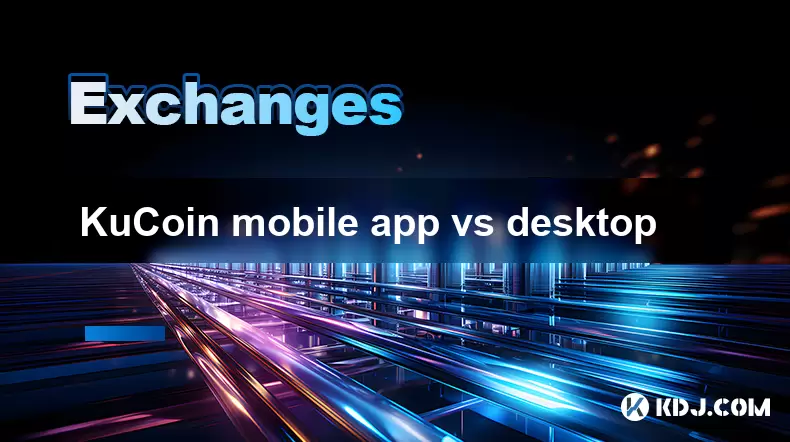
KuCoin mobile app vs desktop
Jul 19,2025 at 08:35am
Overview of KuCoin Mobile App and Desktop PlatformThe KuCoin ecosystem offers both a mobile app and a desktop platform, each designed to cater to diff...
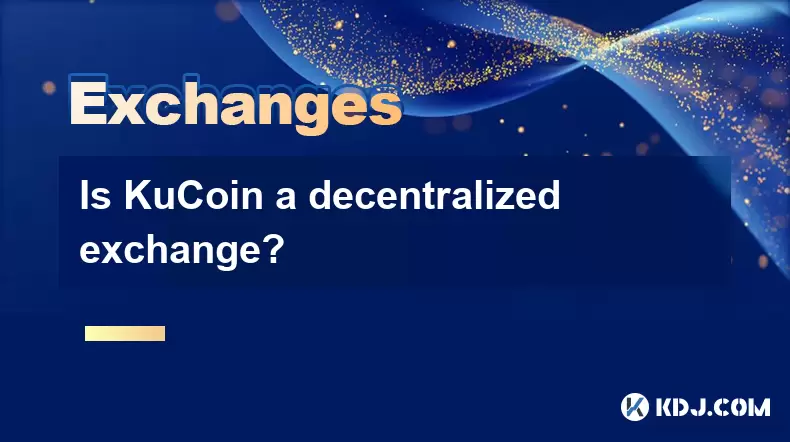
Is KuCoin a decentralized exchange?
Jul 18,2025 at 03:15pm
Understanding Decentralized Exchanges (DEXs)To determine whether KuCoin is a decentralized exchange, it's essential to first understand what defines a...
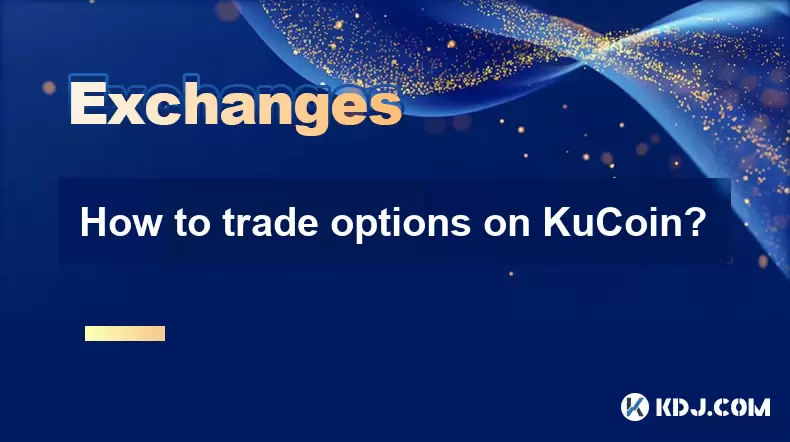
How to trade options on KuCoin?
Jul 19,2025 at 03:42am
Understanding Options Trading on KuCoinOptions trading on KuCoin allows users to speculate on the future price movements of cryptocurrencies without o...
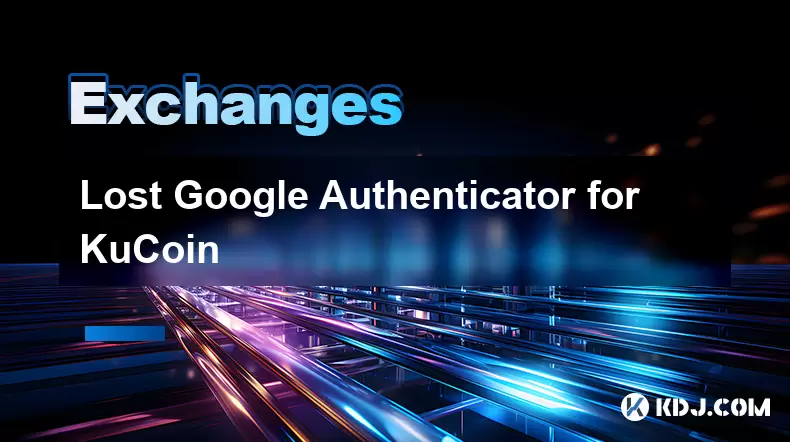
Lost Google Authenticator for KuCoin
Jul 19,2025 at 02:35am
Understanding the Importance of Google Authenticator in KuCoin SecurityGoogle Authenticator is a critical tool used by KuCoin users to enable two-fact...
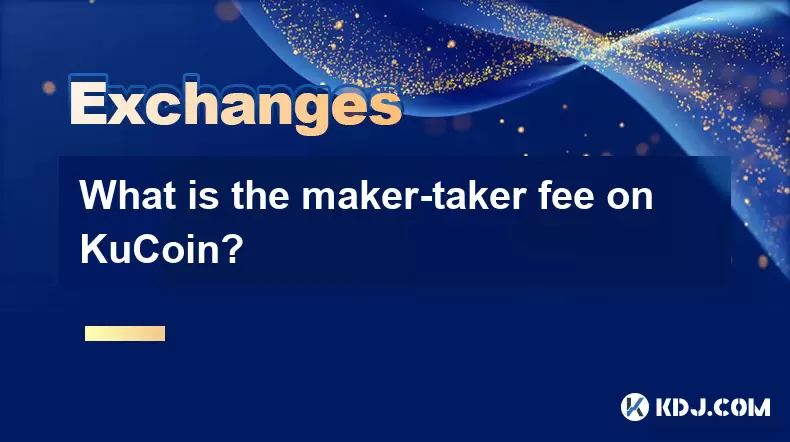
What is the maker-taker fee on KuCoin?
Jul 18,2025 at 12:42pm
Understanding the Maker-Taker Fee ModelThe maker-taker fee model is a pricing structure used by many cryptocurrency exchanges, including KuCoin, to de...
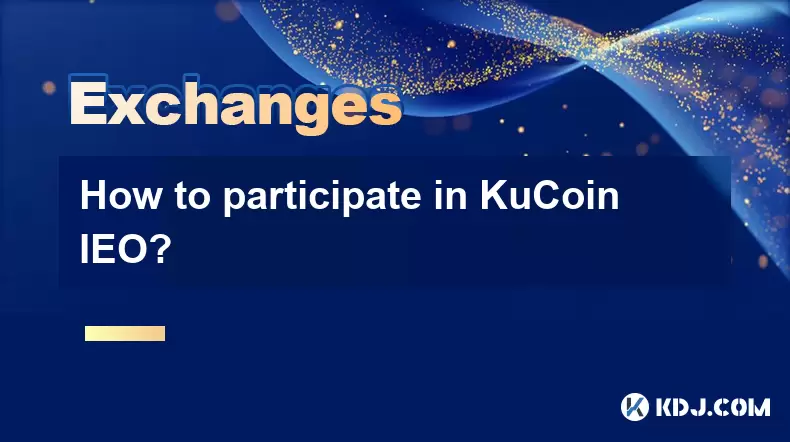
How to participate in KuCoin IEO?
Jul 19,2025 at 11:00pm
What is KuCoin IEO?KuCoin IEO (Initial Exchange Offering) is a fundraising mechanism facilitated by the KuCoin cryptocurrency exchange. Unlike traditi...

KuCoin mobile app vs desktop
Jul 19,2025 at 08:35am
Overview of KuCoin Mobile App and Desktop PlatformThe KuCoin ecosystem offers both a mobile app and a desktop platform, each designed to cater to diff...

Is KuCoin a decentralized exchange?
Jul 18,2025 at 03:15pm
Understanding Decentralized Exchanges (DEXs)To determine whether KuCoin is a decentralized exchange, it's essential to first understand what defines a...

How to trade options on KuCoin?
Jul 19,2025 at 03:42am
Understanding Options Trading on KuCoinOptions trading on KuCoin allows users to speculate on the future price movements of cryptocurrencies without o...

Lost Google Authenticator for KuCoin
Jul 19,2025 at 02:35am
Understanding the Importance of Google Authenticator in KuCoin SecurityGoogle Authenticator is a critical tool used by KuCoin users to enable two-fact...

What is the maker-taker fee on KuCoin?
Jul 18,2025 at 12:42pm
Understanding the Maker-Taker Fee ModelThe maker-taker fee model is a pricing structure used by many cryptocurrency exchanges, including KuCoin, to de...

How to participate in KuCoin IEO?
Jul 19,2025 at 11:00pm
What is KuCoin IEO?KuCoin IEO (Initial Exchange Offering) is a fundraising mechanism facilitated by the KuCoin cryptocurrency exchange. Unlike traditi...
See all articles

























































































